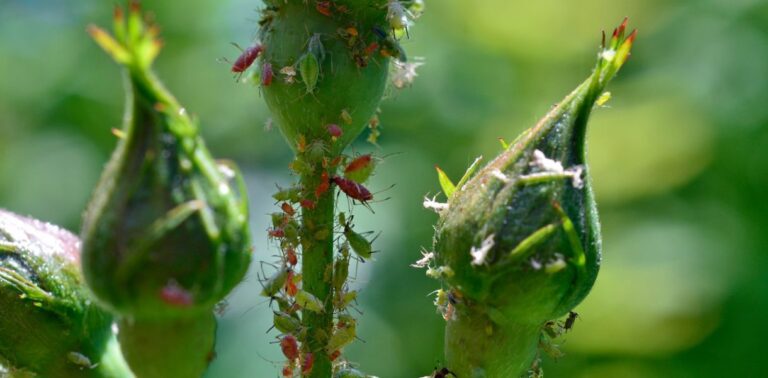Hey, gardening aficionados and rose enthusiasts! It’s Sarah Jensen here, bringing you a dose of green-thumbed wisdom straight from the sunny, albeit sometimes too sunny, landscapes of Austin, Texas. Today, we’re tackling a common nemesis of our beloved rose bushes: those pesky aphids that just love to crash the party.
Prevention is Key: Shielding Your Roses
Let’s start with the basics. The best battle is the one you never have to fight, right? Adopting preventive measures to keep aphids at bay is like knowing the lineup of a concert before it’s announced—it gives you the upper hand. Here are a few tips to keep your roses as inhospitable to aphids as a sold-out show:
- Opt for resistant rose varieties: Just like in music, diversity reigns supreme. Some rose species naturally give aphids a harder time setting up camp. Do a little homework or chat up your local nursery folks to find out which types are less likely to attract these unwanted guests.
- Keep those roses in top shape: A well-tended rose bush is like a well-tuned guitar—it’s less likely to hit a sour note. Regular pruning, deadheading, and appropriate watering go a long way in keeping your plants healthy and less appealing to aphids.
- Think twice before reaching for that nitrogen-heavy fertilizer: Just as some foods can leave us feeling bloated and sluggish, nitrogen-rich fertilizers can make your roses too “juicy” and inviting for aphids. Lean towards organic or slow-release options for a more balanced diet.
Natural Remedies: The Eco-Friendly Approach
Caught some aphids snooping around despite your best efforts? No sweat—there are plenty of natural methods to show them the door, ensuring your garden party remains exclusive:
- Soap it up: Mixing a tablespoon of black soap with a liter of water and spraying it on the invaders is like turning on the house lights at closing time—it clears them out. Repeat every couple of days until your roses are aphid-free.
- Recruit some allies: It’s time to bring in the big guns. Ladybugs, lacewings, and hoverflies aren’t just charming garden guests; they’re aphid-eating machines. You can invite these natural predators by either buying them online or attracting them with specific plants.
- Plant some bouncers: Garlic, onions, mint, and basil don’t just spice up your kitchen; they also deter aphids. Planting these around your roses acts like a velvet rope, keeping the riff-raff at a distance.
Chemical Solutions: A Last Resort
If the natural route just isn’t cutting it and you’re facing an aphid invasion of blockbuster proportions, it might be time to consider chemical interventions. But remember, with great power comes great responsibility. Use these options sparingly and always with the health of the environment in mind:
- Pyrethroid-based insecticides: Think of these as the bouncers of the insecticide world—quick and effective. Available as sprays or powders, they can quickly turn the tide in your favor. Just be mindful not to spray during peak pollinator hours to keep the bees safe.
- Systemic insecticides: These are the slow burners, absorbed by the plant and protecting it from the inside out. Applied as granules or mixed with water, they’re a more prolonged defense strategy. However, be cautious, as they can affect beneficial insects as well.
- Horticultural oils: Smothering aphids in a light oil film is a gentler way to bid them farewell. These oils are less impactful on non-target species, making them a friendlier choice for the ecosystem.
Stay Vigilant: The Continuous Battle
Winning the fight against aphids on your rose bushes isn’t a one-and-done deal. It’s more like the ongoing saga of your favorite band—always evolving, with new challenges and triumphs. Keep a keen eye on your plants, and be ready to adapt your strategies as needed:
- Regular inspections: Make checking your roses for aphids as routine as tuning your guitar. Early detection means easier management.
- Be flexible in your approach: If one method isn’t hitting the right notes, be ready to try another. Sometimes, a mix of techniques is the key to success.
- Embrace garden diversity: A variety of plants not only makes your garden more beautiful but also more resilient against pests. Plus, it’s the perfect stage for attracting those beneficial predators.
Combating aphids on your rose bushes requires a blend of prevention, natural remedies, and, when necessary, chemical interventions. By staying observant, adaptable, and always mindful of the health of your garden and its inhabitants, you can enjoy a vibrant, flourishing space that’s music to your eyes. So, here’s to healthy roses and the joy they bring—may your garden always be in tune.






